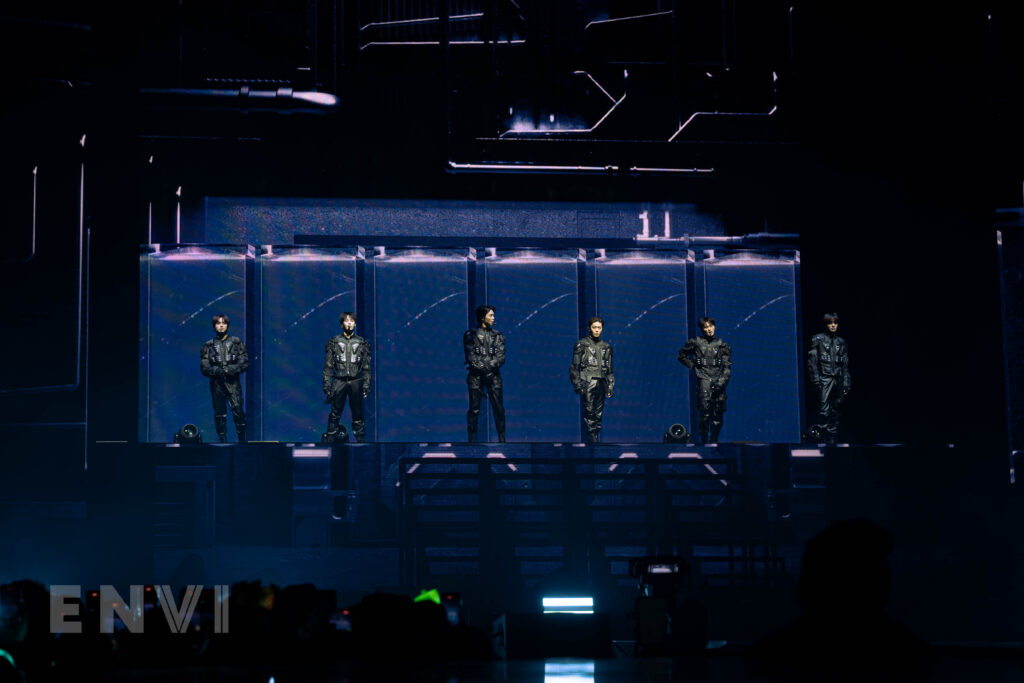First Impressions: To A Land Unknown Captures an Arduous Journey
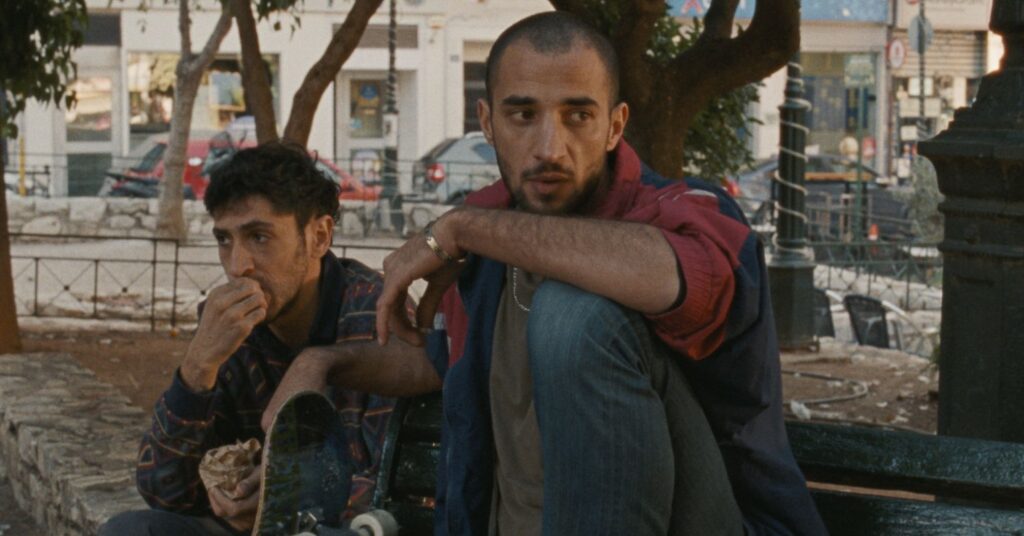
Editor’s Note: This article contains slightly explicit content and spoilers on To a Land Unknown.
Hope and despair are often interwoven together in darkest times. What do you do when there is no hope in sight? Such is the theme Mahdi Fleifel, exiled Palestinian-Danish director brings to the world in To a Land Unknown (2024). The film touches on surviving where there is little room for hope yet finding ways to still make it out of a dire situation. Much of Fleifel’s work is inspired from literature, Hollywood action movies, and Palestinians in exile. To a Land Unknown is a mixture of all, with elements drawn from Of Mice and Men, Midnight Cowboy, and Men in the Sun. After some difficulties with financing the project and finding the right crew, Fleifel’s story has come to life.
During 2024’s film festivals, To a Land Unknown was selected for Toronto International Film Festival 2024, Directors’ Fortnight Cannes 2024, and more. After making its runs, the film has made its way to New York and Los Angeles for an exclusive screening.
State of Limbo
A powerful statement by Palestinian-American scholar Edward Said opens the film: “In a way, it’s sort of the fate of Palestinians, not to end up where they started, but somewhere unexpected and far away.” Shedding light on the painful reality of Palestinian refugees who are constantly displaced, To a Land Unknown is a fictional, documentary-style film that highlights the story of two Palestinian cousins Chatila and Reda who left their camp in Lebanon for Athens, Greece. Athens, a known midway point for refugees trying to cross over to Europe, is no safe haven either, it’s seen as a hopeless place. From Athens, they hope to get fake passports and leave, but their circumstances leave them stuck there. The hard-earned money that the two have saved up for their passports is spent in one regretful night to fuel Reda’s drug addiction.
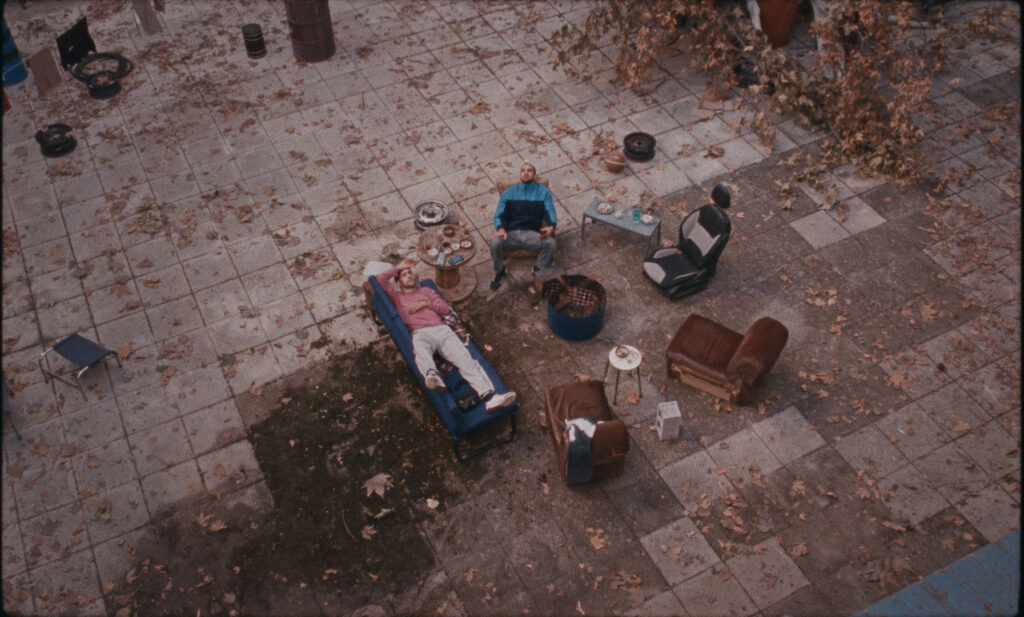
Chatila and Reda find themselves in a state of desperation as their ticket out of their personal Hell is out of reach once again. In order to earn back the money Reda lost, they continue to commit petty crimes to get by. To make it through, Reda turns to sex work for cash while Chatila has an affair with a Greek woman named Tatiana for a distraction.
Extreme Measures May Be the Only Way Out
Just when things were looking grim for Chatila and Reda, they meet someone who plants a seed of hope in them. Malik, a young Palestinian refugee, finds himself stranded in Athens instead of Italy, where smugglers were supposed to take him to his aunt. He follows Chatila and Reda back to where they were living and stays with them. When the boy fails to obtain a fake passport from Marwan, another Palestinian who has built an underground career as a smuggler, Chatila comes up with a plan. Chatila takes advantage of the fact that Malik’s aunt wants him to travel to her by telling her he will make that happen if she pays him and Reda.
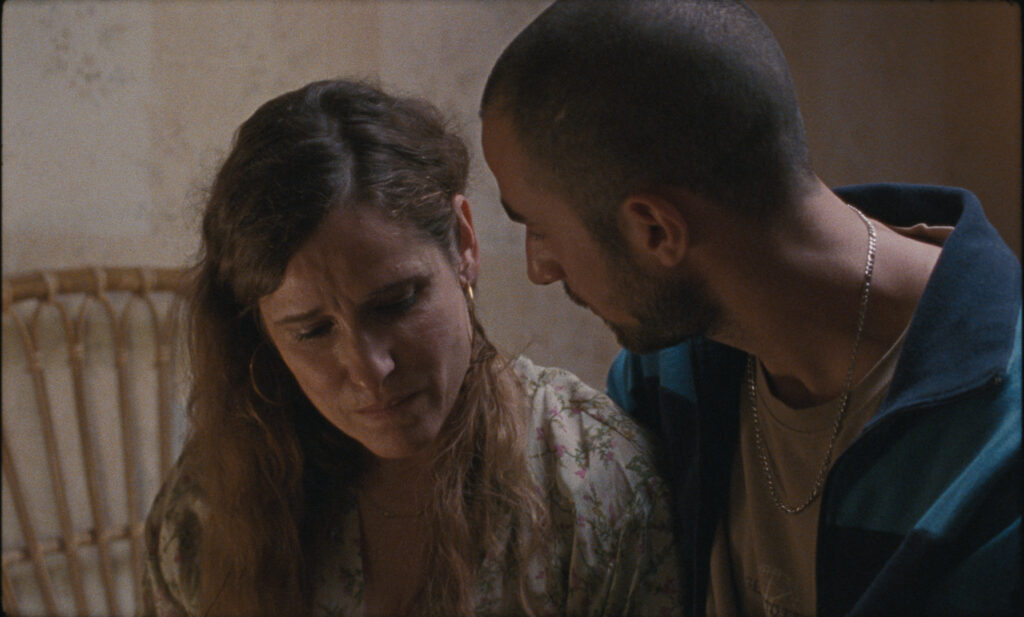
He comes up with a plan to smuggle the boy into Italy. To make sure everything goes to plan, Chatila asks Tatiana to act as Malik’s mother, who will make things seem less suspicious when they fly him out of Athens. He uses their connection as leverage and although she is scared and against it, she agrees. Malik and Tatiana go on their way. Chatila and Reda anxiously wait for a confirmation call and the money from Malik’s aunt, but the film never resolves whether the two made it to Italy. In another quest to leave for Germany, Chatila and Reda resort to making a deal with Marwan to “smuggle” other refugees trying to make it out of Athens. This turns into a hostage situation where the duo lie to Marwan about the safe arrival of his clients in Germany in order to get money and their passports.
A Dog-Eat-Dog World
In an interview conducted by French film critic Serge Kaganski, Fleifel said, “It’s a dog-eat-dog world. A ruthless one where emotions hold no sway.” In a world where living life day to day becomes a fight of its own, Chatila and Reda do whatever they can as a means of survival. When creating the concept of the film, Fleifel asked himself, “What would I do if I found myself stripped of everything: human rights, citizenship, identification papers, money, support, even dignity? How would I survive under such conditions?”
Chatila and Reda still have families back in camps in Lebanon, but as Athens becomes their reality, they must learn to cope. In turn, they become a product of their circumstances. Through phone calls from Chatila’s wife and Reda’s mother, their reality in Athens feels like a world away. His wife tells him it will pass and things will get better once they leave, while Reda’s mother asks Chatila to take care of him. They do not understand the struggle and trauma these two are enduring. “When you embark on a journey like this, a part of you dies while another part survives,” Fleifel said. “Not many of the men I encountered made it through, but those who did, something within them died.”
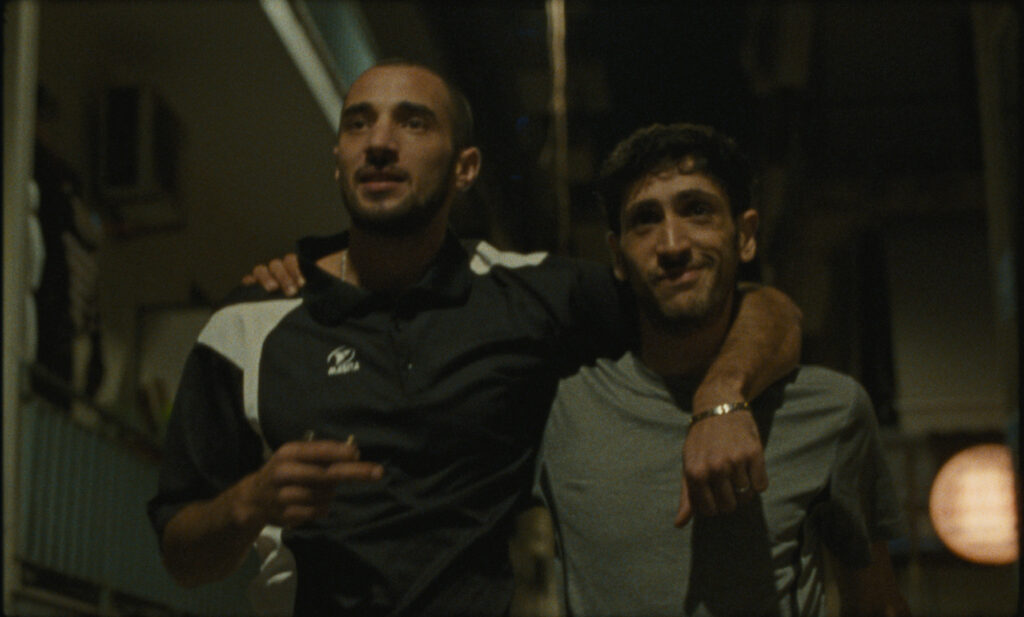
As characters, Chatila and Reda are like two sides of the same coin — Chatila is more head strong, rougher, and the one who leads while Reda is more kindhearted and soft. Their dynamic remains consistent throughout the movie, with Chatila taking charge of their next move while Reda, sometimes apprehensive, goes along with him.
Viewers can see a buffer in their harsh survival tactics when Malik enters their lives. Malik’s childlike innocence, despite the challenges, still presents itself when he is with Chatila and Reda. Scenes of Reda pushing Malik in a shopping cart shows the audience Reda’s softhearted nature as he steps away from his addiction. Malik’s character in a way symbolizes hope of getting out, which the pair hold on to.
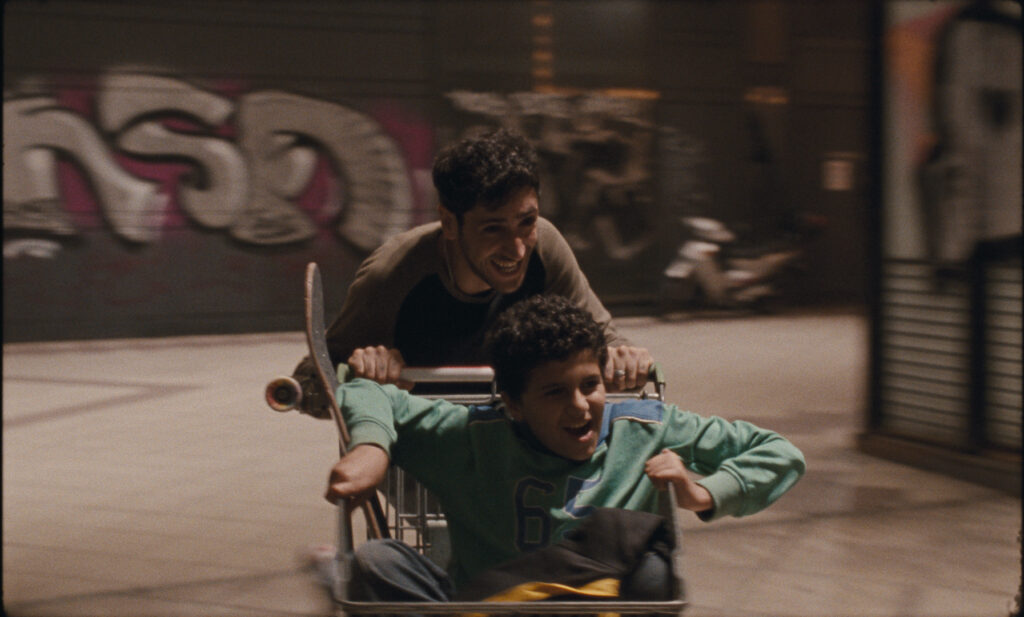
One Story in a Cultural Crisis
Fleifel’s goal was to portray the characters of the film “as authentically as possible” so viewers have a chance to access a world they would never know. “To a Western audience, these individuals often remain mere statistics, devoid of humanity. They know nothing of their dreams, fears, or hopes,” he said. While To a Land Unknown does not dive into the major events of the Palestinian genocide, it shares a real story of the impact and preservation through scenes like talking about memories of home and cooking Palestinian food. The duo even share their dreams of opening a cafe in Germany where they plan to bring elements of Palestine, the open community feeling, and influences of their own families into it.
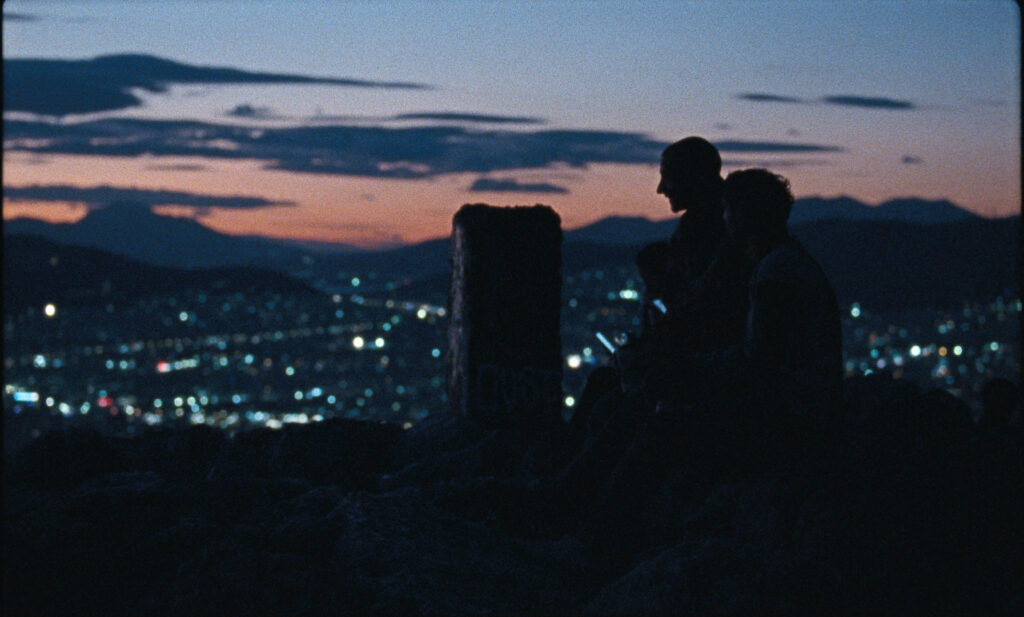
Fleifel, who has worked on numerous other films and documentaries, both fiction and non-fiction, based both Chatila and Reda off of a real Palestinian person, who he documented in his films 3 Logical Exits and A Man Returned. The real Reda left his wife and children in Lebanon, was stranded in Greece, and wanted to reach Germany. “I owe it to him because he inspired me to revisit this project after years of doubt,” Fleifel said. Unfortunately, after a few months of Fleifel returning to film him and continue his story again, Reda passed away from an overdose in Athens.
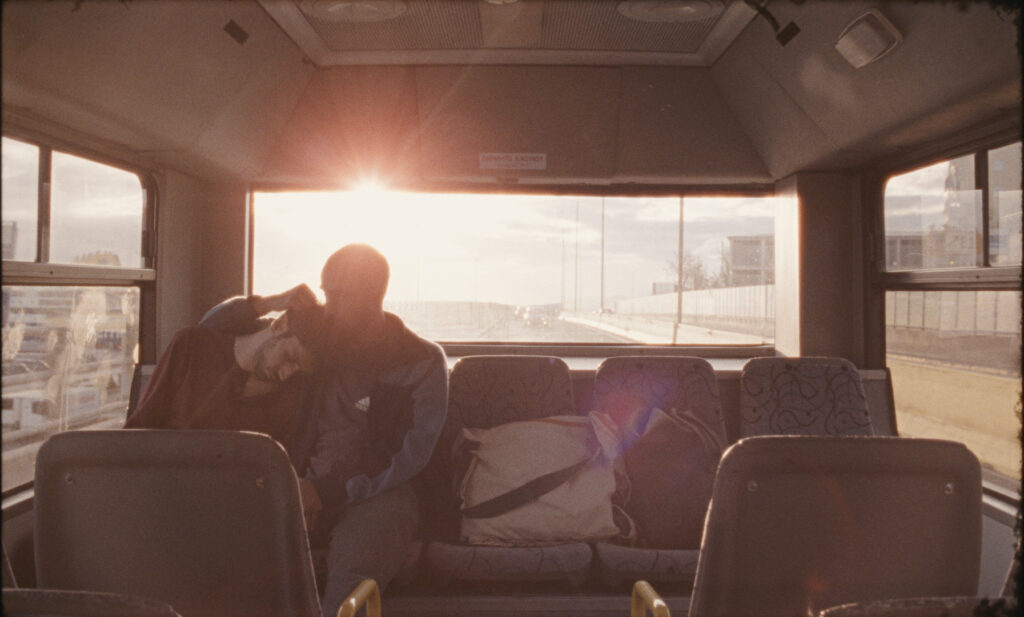
The film ends on a bit of an open ended yet realistic note as Chatila and Reda were so close to making their dreams of leaving Athens a reality. The audience will never know if they were able to make it out. This parallels the reality of many Palestinian refugees stuck in camps who seek nothing more than to leave. “My experience was to focus on what’s close to me,” Fleifel said, as he spoke about bringing to life a story of refugees. “As a son of Palestinian refugees who grew up in Denmark, this has been my story. Palestine is a mosaic of many stories and many situations, essentially we are a people in exile.”
To a Land Unknown is now exclusively out for viewing in theaters July 11 in New York and Los Angeles. It will also be followed by a national roll out.
Interested in more intense films? Check out our review on The Old Woman with the Knife here!



